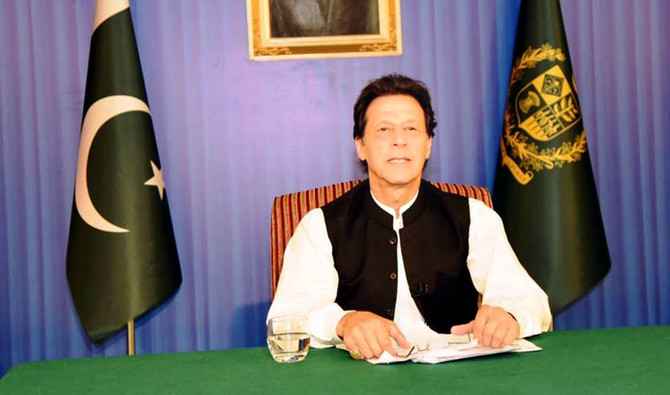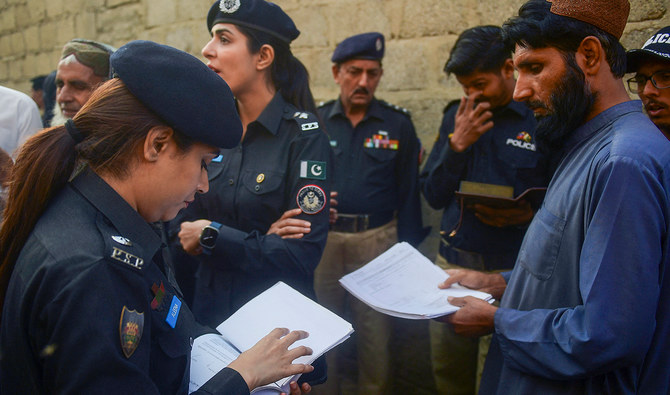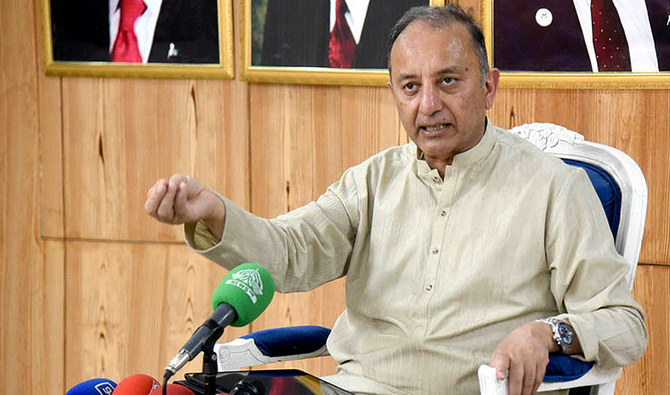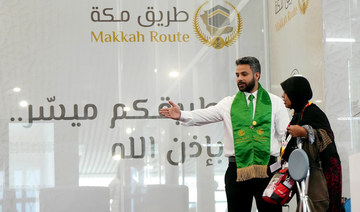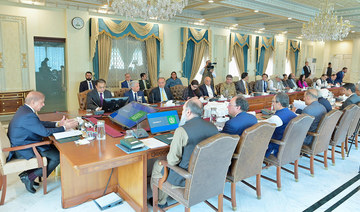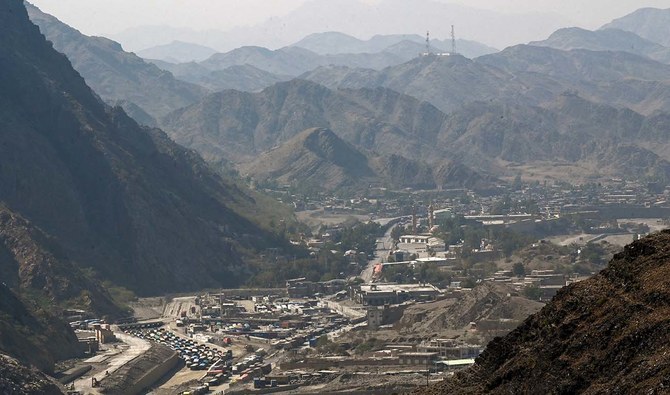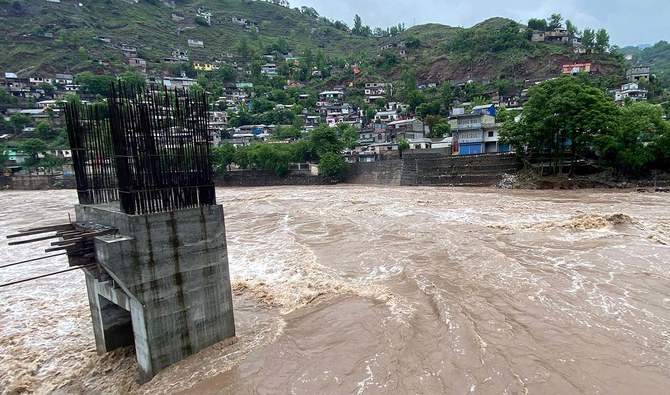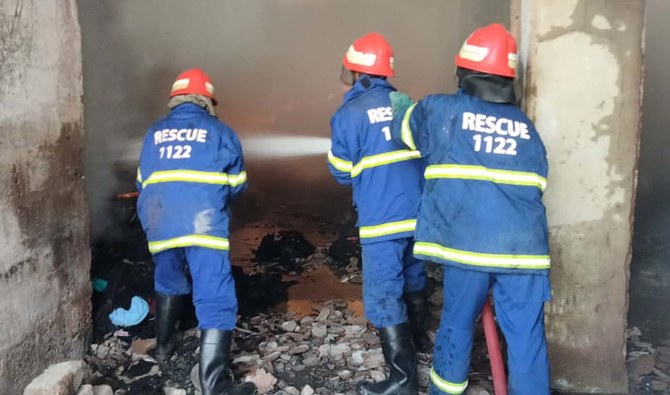ISLAMABAD: Prime Minister Imran Khan on Sunday promised to bring change, root out corruption, introduce massive reforms, tackle the economic crisis, and alleviate poverty during his governance tenure.
“New Pakistan needs a new mindset”, Khan said in his extempore inaugural address to the nation.
This new mindset includes leading by example and the former cricket star hailed as the country’s hope said he will live modestly. He earlier planned to live in his own home but decided to stay in a three-bedroom government house with two cars on intelligence agency recommendations.
“I won’t stay at the PM house but at the military secretary house due to security threats. I have to stay here,” he said.
In a lengthy speech, Khan said, “Pakistan has never faced a more severe economic crisis. The interest we are paying on loans, we need loans to pay off the interest” separately from the principal amount. “Our external debt has ballooned exponentially”.
"Our debt burden is now at Rs28 trillion. We haven’t been as indebted in our entire history as we have become in the last ten years", Khan expressed in sadness but told the nation not to worry assuring he will burden the responsibility to resolve the crisis but didn’t divulge details of his plans.
“We have been surviving on foreign loans and begging for more loans. We can’t progress like this. We can’t survive this way and no one is willing to give us loans. Those giving loans also take away our freedom. I will bring this nation back on its feet. We will not beg,” he said.
Plea to overseas Pakistanis, spending reforms
As he directed the country's foreign missions to assist overseas Pakistanis, who send $20 billion in foreign remittance to the country every year, he also urged the expat community to invest in their homeland.
“We need dollars and we want you to deposit your money in our banks. Send remittances through banking channels to help Pakistan reduce its external debt,” he appealed.
“We need to expand our export base. We need to bring investments in to the country. A one window operation will be setup at PM Secretariat to address issues and inquiries of potential investors”.
Khan promised to drastically cut spending by the prime minister's office and the cabinet as he detailed assets and lavish spending by his predecessor and his cabinet members.
“The PM of Pakistan has 524 servants, 33 bullet proof cars” worth multimillions, a “550,000 square yards house” and “planes and helicopters” at the premier’s disposal. “$5,273,833 was spent on foreign visits by the PM. $1,298,174 was spent by the speaker of the national assembly on foreign visits. We need to change this or else we will destroy ourselves. We have change our lifestyle. We have to change our mindset”, he underscored.
"On one hand we don’t have money to spend on our people, and on the other we have people living like our colonial masters used to live," he said.
Khan said his administration "will auction all the luxury cars” and “reduce our government spending”, a decision the PM will deliberate at the cabinet committee meeting.
He said he will organize a task force under Dr. Ishrat Hussain, his adviser on institutional reforms and austerity, "to reduce government spending” and “spend on the poor.”
Tax reforms and campaign against corruption
While promising to cleanse the Federal Bureau of Revenue (FBR) of corruption, he also appealed to the nation to support his cause to change the dynamics of the country by paying taxes.
“Of the 200 million people only 800,000 pay taxes. I will assure that I will safeguard your tax money and continue the austerity drive. We have to pay taxes to alleviate poverty and uplift the poor,” he said.
“Progressive taxation is needed. Tax the rich to support the poor as many western states do. In the west even animals have better treatment then our people receive.
“Corruption stops progression. We will put full pressure to curb corruption and will assist the National Accountability Bureau,” he said.
Khan said a task force will be constituted to recover Pakistan’s money that have been stashed abroad. “According to the US State Department report, $10 billion dollars is laundered annually from Pakistan. Those who have money laundered we will get that money back. Don’t vote for those that have stashed their earnings abroad,” he said.
He also pushed for a “whistleblower act” to root out corruption.
”We will pass a whistleblower act. Whoever exposes corrupt activities will receive 20 to 25 percent of the recovered loot. We will get FIA to act against the corrupt. I will personally see to that. The corrupt will scream and they will take to the streets and threaten democracy. I request your support”, said Khan.
Human development
Khan said he will also give priority to supporting human development, which had been neglected by past administrations.
“We are one of the five countries where infant mortality is highest due to unclean water," he bewailed, citing a United Nations report.
He showed a scan comparing the brain of malnourished and nourished children and said, “45 percent of the children suffer in Pakistan because of malnutrition.”
He said over 22 million children remain uneducated. Expensive private education institutes have capitalized on the government’s inability to provide expectational education standards.
“Government schools need to be fixed and brought up to standard. We need to educate our children”, stressed Khan. “This is an emergency.”
Rule of law, health care
Khan also plans to push for reforms to ensure a swift justice system nationwide. “The rule of law is required for a nation to progress. It should be equal for all and all people are equal in front of law,” he said.
“We will speak to the Chief Justice of Pakistan and resolve cases in a year,” he added.
On health care, he said, he stressed the need for better health facilities. "It’s tough to fix government hospitals. The management system needs to be fixed and changed. I have made a task force to address those challenges and bring a health card across the nation and introduce health insurance usable in any hospital,” he said.
On Pakistan’s water crisis, Khan said he will introduce water conservation reforms and accumulate funding to build dams. He briefly spoke about global warming and the need to plant more trees and spend on agriculture research to help farmers to increase their crops.
On civil service, Khan said he will institute reforms with the aim of bringing back what Pakistan had in 1960s, when the country had the best civil service in Asia.
He urged civil servants to reject political interference in their work. "We want you to work for Pakistan and help the people of the country. Right to services at will be introduced. If departments work on time for people, they will receive bonuses, but those that don’t’ will be penalized”, said Khan.
Furthering his commitment to the youth for jobs, Khan said he will introduce housing schemes. “This will help young people. We will give technical skills and give loans and make sports grounds and parks.”
“Air pollution will be on the agenda. Cleanup campaign is also on the agenda," he said. “Pakistan should be neat clean in next five years at par with European countries”.
Khan also said he will build resorts to attract tourism and develop the beaches.
Peace and order
Khan is pushing for a 15-point National Action Plan to curb terrorism and extremism in the country and to diligently work towards improving foreign relations.
“Due to war, FATA has suffered destruction. We will quickly merge KP and FATA and hold elections. Baluchistan is also suffering. We will try our best to resolve militancy and improve situation in Baluchistan”, said Khan,
He also promised to carry out programs that will turn Pakistan into a welfare state. "We will take responsibility of street children, widows, and the handicapped," he said.
“I will spend my life in devotion. I will save your money and spend on the poor. I will not do any business during my tenure.
"Those that have stolen are your enemy and your enemy are my enemy. Help me to stop the corrupt. It’s the era of social media. Keep checks on us. Help me save your money. We have to save Pakistan. One day it will happen and no one will take charity but give. That’s my vision,” he said.



